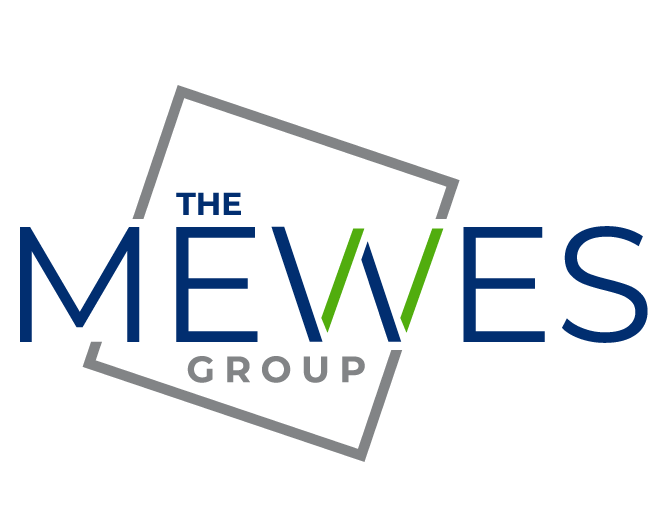Claim Overlooked Tax Credits
The Leading Business Tax Credits Solution
Receive Credits You Are Already Entitled To & Protect Your Business From Unwarranted IRS Scrutiny
The Mewes Group takes the guesswork out of tax credits, legally and ethically.
Substantial funds are waiting for you. Don’t miss your deadline and get started today.

$100M +
Savings Claimed (So Far)
600 +
Startups & SMBs Served
$200K +
Our Average Credit Claim

Why The Mewes Group
Hundreds Of Businesses Served, Millions In Tax Credits Earned.
The Mewes Group is the leading solution to find and file unclaimed business tax credits. We have decades of combined experience that have allowed us to refine a methodology that will provide you peace of mind.
(PS. None of our companies have needed to use the guarantee!)
IRS Scrutiny
There are 33 million small businesses in the US but only a fraction of them are claiming tax credits legitimately. Millions of taxpayers have filed fraudulently, and don’t even know it.
It’s convoluted but we’re here to do it for you.

How It Works
1. Sign Up And Connect Your Systems
Plug your payroll or accounting systems into the The Mewes Group dashboard to give us insight into your payroll activities and business operations during covid.
We scan hundreds of federal, state, and local government regulations and covid mandates to match you with the ones most impactful to your business. From there, we’ll create your personalized credit estimate.
2. Establish Your Qualifying Events
Upon completion of the initial credit estimate, you’ll meet with our legal compliance team to document key details about your day to day business operations. Depending on the type of credit, this may include reviewing how your business was affected by certain government orders, understanding how certain workers engage in research and experimentation, or understanding building upgrades or reconfigured work spaces.
You will work alongside our dedicated tax and legal experts to maximize your credits and save yourself weeks of frustration navigating arcane government mandates that could be better spent managing your business.
3. File Your Claim
Once your qualifying events are fully documented, we’ll send you the necessary forms needed to claim your tax credits.
Simply sign these forms, and we’ll file them. We’ll sign off on the forms as well, and track the forms every step of the way.
Cost Segregation
R&D Tax Credits
ERC
179D Tax Deductions






With The Mewes Group, You’ll Get:
- Lifetime Audit Support in the event there is ever an inquiry, request, audit or otherwise, The Mewes Group is here for you.
- A dedicated team of tax specialists, on hand to guide you with the next steps of your claim.
- A comprehensive study prepared by our specialists and in-house legal and compliance experts that supports and substantiates your tax credit claim per IRS guidelines.
The Mewes Group Works Seamlessly With Your CPA
Our team knows what your CPA will need when you receive your credits:
· Save them time and let them focus on your annual filings.
· Easily add your CPA to collaborate on your filing.
· Send them what they need with the click of a button.

Savings Made Simple
Schedule a call. We’ll find overlooked tax credits that you may qualify for, whether its R&D, Real Estate Cost Studies, ERC, 179D, or other tax credits. Once you qualify, we do the heavy lifting to claim your tax credits and pass the savings on to you.
Tax Credit FAQs
We stand by our work.
In the unlikely event of an audit, you’re covered up to $1,000,000 for any fees, penalties, or interest you have to pay to the government due to a Mewes Group error through our professional E&O policy.
We’ll support you during the process.
When you work with us, you’re protected by The Mewes Group Guarantee: that you’ll end up in a better financial position by using our services. If you don’t, we’ll refund our fees accordingly.
In the event of an audit, we’ll support you and/or your authorized representative respond to any communications. And, in the unlikely event you’re assessed any fees, penalties, or interest due to a Mewes Group error, you’re covered up to $1,000,000 through our professional E&O policy.
Some other credit processors intentionally do not protect you during audits to cut costs – when it comes to tax work, you get what you pay for. We stand by all our work and will step in to justify the credits claimed on your return.
It’s great if you do, but we can work with the data you have. Just let us know and we’ll help get the correct reports from whatever system you use.
I use [insert payroll system here] – can I use The Mewes Group? Yep. 🙂
We integrate directly with ADP, Paychex, Quickbooks, Gusto and others. We will never sell or rent your data to a third party, and all data that we collect from you is encrypted securely.
These credits are difficult to find and even more difficult to file for. Many accountants and firms don’t bother to file for these credits because they’re paid per filing, not by the amount of money they save for you.
It’s free to have us qualify your business, and we play nice with your CPA. We’ll send them the forms to include in your year end filing to properly report your income and ensure you stay in compliance, not just when you file for your credit, but also when you report your credit and and answer any of their questions.
Nope! You do not need to be profitable to get cash back.
Most of the savings discovered by The Mewes Group are considered refundable tax credits and you receive a check from the US Treasury for the amount of the credit.
We only make money when you do.
Our fees will never exceed 25% of savings we find and claim for you. So, if we qualify your business for $100,000 in tax credits, our fee would be capped at $25,000.
If your business is based in the US or employs people in the US, then likely yes 🙂
If your company conducts some type of economic-activity in the US – has employees, or has some type of in person business operations based in the US – then yes, you’re likely to be eligible for some number of tax credits. If you’re doing any of the following, you’re likely owed cash back: it’s free to see if you qualify for different tax credits and takes less than 20 minutes to sign up:
- Operated a business during covid, or started a business during covid.
- Experienced a decrease in sales during covid.
- Were required to modify operations, working hours, work shifts, or customer interactions during covid.
- Experienced supply chain issues, parts or product backorders, delays, or unavailability.
If you don’t meet these criteria, you can still schedule a call. There are many other types of credits and incentives that may be available to your business if you own real estate, engage in research and development activities, or train workers.
Yes – your data is secured and used only for The Mewes Group products.
We will never sell or rent your data to a third party, and all data that we collect from you is encrypted securely.
Every credit advance schedule is personalized to your company, how much you’ve qualified for, and the type of credit you’ve qualified for.
Typically, when we submit your filing you will pay a nominal retainer no more than $2500.
It’s our guarantee that your fees paid to The Mewes Group will never exceed 25% of the benefit received. All specifics about your billing will be clearly outlined in our engagement agreement in your Contracts section of your The Mewes Group dashboard.
It takes less than 15 minutes to get set up with The Mewes Group.
Onboarding with our self-serve flow takes about 15 minutes, or we’re happy to walk you through the process live.
For most of our tax credits, we’ll need no more than an hour of additional time when we generate your paperwork to confirm details and make sure you and your accountant understand the credits we’re helping you claim. Easy peasy.
We’re not your standard tax preparer.
We’ll take up less of your time. Most accountants and boutique agencies will take 20 to 40 hours of your time to manually generate the paperwork and ERC studies that protect you in case of an audit. We grab all the data we need programmatically – for most credits, we’ll need less than an hour of your time when it’s time to file to confirm and review our work.
Lifetime Audit support. Some other credit processors intentionally won’t support you during an audit to cut costs – when it comes to tax work, you get what you pay for. We stand by all our work no questions asked.
We’ll do the legwork and send you the forms to claim the credit.
Once received, the nuts and bolts of the process will largely depend on which credits we’re helping you claim – for example, with the ERC credit, we’ll prepare and provide your Form 941X using data collected from your payroll system. When you receive your credit your accountant will include it along with your annual tax filing. We’ll walk them through the exact adjustments to make to accurately and appropriately report your refund.
Here’s a link to a PDF that shows you exactly how to report the receipt of your ERC credit.
It largely depends on the size of the refund. The larger the refund the more layers of approval your filing must go through with the IRS. Typically we see a 6 to 9 month turn around. But we’ve seen as long as 23 months and as short as 4 months.
It depends on the type of credit. For example, the IRS has indicated that the ERC is an area of increased enforcement for the agency. Unfortunately, many firms of ill repute have popped up over the past year, filing with limited documentation, or worse, fraudulently. We actively support increased IRS vigilance in this area.
Generally less than 5% of all businesses are audited annually, and you’re protected by the The Mewes Group Lifetime Guarantee: we guarantee you’ll end up in a better financial position by using our services. And, in the unlikely event you’re assessed any fees, penalties, or interest due to a Mewes Group error, you’re covered up to $1,000,000 through our professional E&O policy.
Some other credit processors intentionally do not protect you during audits to cut costs – when it comes to tax work, you get what you pay for. We stand by all our work and will step in to justify the credits claimed on your return.
We’re happy to spend time with you and your accountant to explain our work.
We’ll always share forms and details with you ahead of time – some paperwork we can file on your behalf, some will be sent to your accountant to be included in your annual tax returns.
You’ll be kept in the loop every step of the way and we’re happy to walk you through any specifics before filing.
We’ve Got The Experience To Do This Right.
About The Mewes Group
In March of 2020 at the outset of the pandemic, I had the opportunity to participate on a call with the White House regarding covid business relief programs. It quickly became quite apparent the size and complexity of these programs, and that business owners were going to be left on their own to figure out these programs. It is our mission to aid business owners to successfully navigate these programs, legally and ethically.
We specialize in tax credits and government incentives. Our sole focus is to help you take advantage of complex government programs like the ERC, Real Estate Cost Studies, R&D Credits, and other credits.



